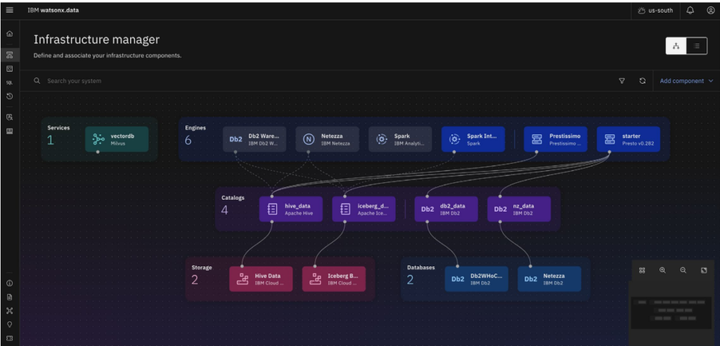Donald Trump’s AI Policies Unveiled at the World Economic Forum

A New Era of AI Policy Leadership
In a world where artificial intelligence (AI) defines the competitive edge of nations, the United States under Donald Trump’s administration has signaled a bold shift in its approach to AI governance. By prioritizing deregulation, fostering innovation, and initiating unprecedented investment projects like the $500 billion Stargate initiative, Trump’s policies aim to ensure American dominance in the global AI race.
These policies have sparked debate, with proponents lauding their potential to drive technological and economic growth, while critics express concerns over ethical and safety risks. For enterprise leaders, understanding these shifts is critical for navigating the evolving landscape of AI development and governance. This blog unpacks Trump’s AI policies, their implications, and the opportunities they create for businesses striving to stay ahead in a rapidly transforming world.
Key Challenges in AI Policy and Governance
The Trump administration’s deregulation-first approach introduces a unique set of challenges for businesses, policymakers, and technologists.
- Fragmented Regulatory Landscape
With the federal government adopting a hands-off approach, states have stepped in to regulate AI. In 2024 alone, at least 45 states introduced AI-related bills, focusing on issues like algorithmic bias and privacy concerns 1. This patchwork of regulations may lead to increased compliance costs for companies, particularly those operating across multiple jurisdictions. - Ethical and Safety Concerns
The rescission of Biden’s executive order on AI safety removed many stringent oversight measures, raising concerns about algorithmic bias and privacy violations 2. While innovation may accelerate, companies face reputational and legal risks if they fail to address these issues independently. - Global Geopolitical Tensions
Trump’s AI strategy, particularly its aggressive export controls on AI technologies, has intensified competition with China. This “digital cold war” has disrupted global supply chains and created uncertainties for businesses dependent on international collaboration 3. - Workforce Displacement
The rise of AI-driven automation threatens significant job displacement, with nearly 40% of jobs globally expected to be impacted 4. While the administration has emphasized workforce development, companies must prepare for this economic shift.
Turning Challenges Into Opportunities
Despite the challenges, Trump’s AI policies create opportunities for businesses to thrive. Here are the key strategies for leveraging this environment:
- Invest in State-Level Compliance
With states leading the charge on AI regulation, businesses can gain a competitive edge by proactively aligning with emerging state-level policies. Companies that demonstrate compliance with ethical AI standards will not only mitigate risks but also build consumer trust in an era of heightened scrutiny. - Capitalize on Federal Deregulation
The Trump administration’s deregulatory stance has created a conducive environment for innovation. By reducing compliance burdens, tech companies—particularly small and mid-sized firms—have more latitude to experiment and disrupt markets 5. - Expand AI Research and Development (R&D)
Federal initiatives like the $500 billion Stargate project are creating unprecedented opportunities for R&D in AI infrastructure. Businesses should actively engage in public-private partnerships to access these resources and accelerate innovation 6. - Develop Workforce Reskilling Programs
Addressing workforce displacement requires strategic investment in reskilling programs. Trump’s $2 billion investment in AI-related education provides a foundation, but companies must also create tailored training initiatives to equip employees with future-ready skills 7.
Major Companies Leading in a Deregulated AI Market
The Trump administration’s policies have reshaped how leading tech companies innovate and compete. Here’s how major players are adapting:
- OpenAI and the Stargate Initiative
As a key partner in the $500 billion Stargate project, OpenAI is spearheading efforts to expand domestic AI infrastructure, including building data centers and advancing AI capabilities 8. This collaboration highlights the strategic value of public-private partnerships in achieving national AI goals. - Oracle’s Leadership in Cloud Computing
Oracle’s involvement in Stargate reflects its commitment to supporting AI innovation through cloud infrastructure. By leveraging its expertise, Oracle is helping position the U.S. as a leader in global AI competitiveness 9. - Google and Microsoft’s Deregulatory Advantage
Reduced compliance costs under Trump’s administration have allowed companies like Google and Microsoft to redirect resources into R&D. This has enabled faster innovation and enhanced their competitiveness in emerging AI markets 10.
IBM’s Commitment to Ethical, Transparent, and Explainable AI
While Donald Trump’s administration has adopted a deregulatory approach to AI, IBM stands out as a leader in ethical AI innovation, prioritizing transparency, explainability, and fairness in its AI solutions. These efforts are particularly noteworthy as the federal government shifts regulatory oversight to the private sector.
Ethical Leadership in AI
IBM has long championed the development of ethical AI systems, even in an environment that emphasizes rapid innovation over stringent regulation. The company actively works to mitigate risks such as algorithmic bias, privacy violations, and unintended consequences. Its AI Ethics Board, an internal governance framework, oversees the ethical implications of IBM's AI technologies and ensures alignment with core principles like fairness, accountability, and inclusivity.
For example, IBM has introduced open-source tools like AI Fairness 360 (AIF360), which allows developers to detect and mitigate bias in AI models. This tool has been widely adopted across industries, demonstrating IBM’s leadership in fostering ethical AI even in competitive and fast-moving markets.
Actionable Recommendations for Decision-Makers
Enterprise leaders can harness the potential of Trump’s AI policies with these practical steps:
- Engage in Policy Advocacy
Collaborate with industry groups to influence state and federal policies, ensuring they align with both business and societal interests. - Leverage Public-Private Partnerships
Participate in initiatives like Stargate to access funding and resources for AI R&D, enabling faster innovation and competitive advantages. - Prioritize Ethical AI Practices
Establish internal guidelines to address algorithmic bias, data privacy, and other ethical concerns. Transparency and accountability will be critical for long-term success. - Invest in Workforce Transformation
Develop training programs to reskill employees, preparing them for roles in an AI-driven economy and mitigating job displacement risks. - Expand Globally with Caution
Navigate geopolitical tensions carefully by diversifying supply chains and adhering to export control regulations.
Embracing the Future: Strategic Leadership in AI
Donald Trump’s AI policies represent a significant shift in the governance of emerging technologies. By embracing deregulation, fostering public-private collaboration, and prioritizing American leadership, the administration has laid the groundwork for rapid AI innovation. However, businesses must address the associated risks, including ethical dilemmas, compliance challenges, and workforce disruption.
The key takeaway for enterprise leaders is clear: Adaptability and proactive engagement with both regulatory and technological trends will be essential for thriving in this new AI-driven era.
Subscribe for the Latest AI Insights
Stay informed about the latest trends in AI policy, innovation, and governance. Subscribe to our newsletter for expert analysis, actionable strategies, and real-world case studies that will keep your business at the forefront of technological transformation.
References
- https://theconversation.com/tech-law-in-2025-a-look-ahead-at-ai-privacy-and-social-media-regulation-under-the-new-trump-administration-245425
- https://www.usatoday.com/story/money/2025/01/20/trump-revokes-biden-executive-order-ai-risks/77842476007/
- https://www.justsecurity.org/105900/us-trump-china-ai/
- https://www.dw.com/en/tech-titans-openai-oracle-softbank-join-trump-for-ai-billion-dollar-initiative/a-71375833
- https://www.securitypalhq.com/blog/what-trumps-ai-deregulation-means-for-compliance-in-2025
- https://www.cnbc.com/2025/01/23/from-musk-to-nadella-tech-ceos-spar-over-trumps-stargate-ai-project.html
- https://www.economist.com/business/2025/01/22/a-500bn-investment-plan-says-a-lot-about-trumps-ai-priorities
- https://finance.yahoo.com/news/trump-announces-500-billion-stargate-ai-venture-headed-by-oracle-openai-softbank-212012023.html
- https://www.dw.com/en/tech-titans-openai-oracle-softbank-join-trump-for-ai-billion-dollar-initiative/a-71375833
- https://www.benzinga.com/news/large-cap/25/01/43106379/trump-reverses-bidens-ai-policies-on-day-1-what-it-means-for-tech-giants-nvidia-amd-alphabet


